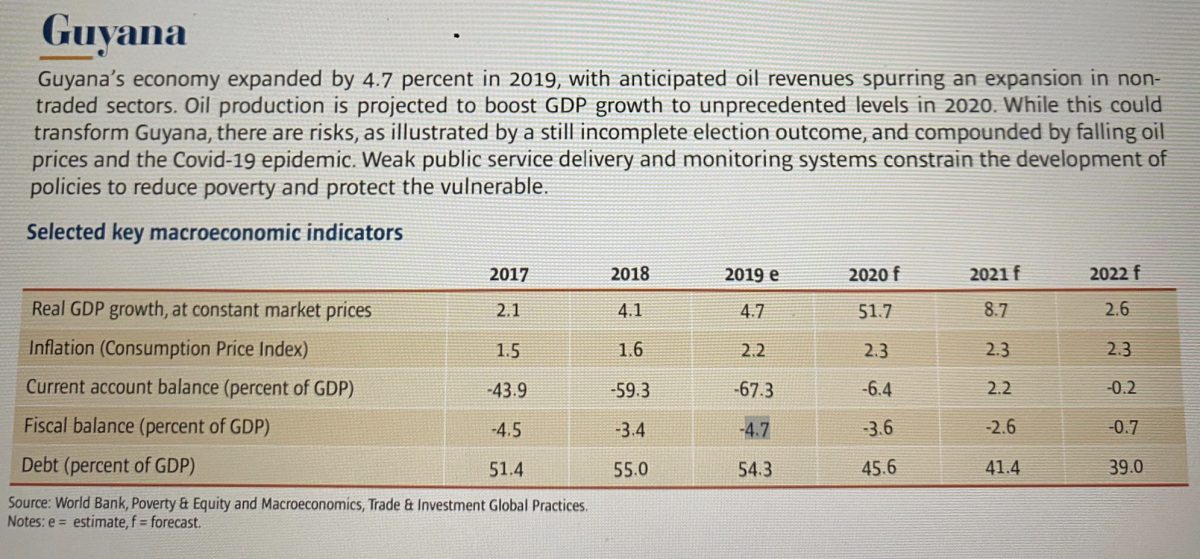Guyana’s economy could be pegged back by risks generated by the incomplete general election and the rampaging coronavirus, according to the World Bank’s latest semiannual report which also has more modest figures for growth of GDP in the next three years.
In its country summary, the report said that Guyana’s economy expanded by 4.7 percent in 2019, with anticipated oil revenues prompting an expansion in non- traded sectors.
“Oil production is projected to boost GDP growth to unprecedented levels in 2020. While this could transform Guyana, there are risks, as illustrated by a still incomplete election outcome, and compounded by falling oil prices and the Covid-19 epidemic. Weak public service delivery and monitoring systems constrain the development of policies to reduce poverty and protect the vulnerable”, the report said.
Entitled ‘The economy in the time of Covid-19’, the report projects GDP growth for Guyana for 2020 at 51.7%, marking the first full year of oil production. A GDP growth of 8.7% is projected for next year and 2.6% for 2022.
On the vexed question of who pays for the dislocation to the economy caused by Covid, the World Bank report contended that it was the central government which had to take on the responsibility.
“A key question is who in the end should bear the losses. From an economic point of view, the answer is simple: the losses should be centralized with the government to the extent possible. Confronted with an uninsurable shock like the Covid-19 epidemic, only governments can serve as an insurer of last resort. But given the resource constraint, it is important to clearly communicate how the losses will be managed. A statement of this sort would coordinate expectations and help economic agents adjust to the new environment, serving as a social compact on how to manage the crisis. But the statement should also be realistic on what is feasible, spelling out clear priorities.
“To support jobs and firms, governments may need to take ownership stakes in strategically important firms. To avert a financial crisis, they may need to recapitalize banks and absorb non-performing assets. If not adequately managed, these moves could open the door to rent seeking and political patronage. The process of acquiring and managing assets needs to be perceived as transparent and professional to maintain confidence in the government. This may also allow decision makers to take urgently needed measures without fearing prosecution in the future.
Strong arrangements need to be put in place to ensure that the acquisition and management of assets is conducted at arms’ length from politicians, building on the best examples of sovereign wealth funds and as- set management companies in countries at similar development levels”, the report said.
With a lockdown of the commercial sector here by the government until May 3rd, questions have been raised about what help will be accorded by the state to those businesses which cannot continue to keep workers on payroll.






